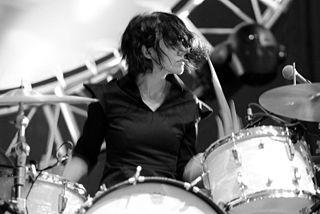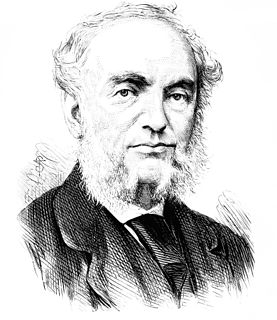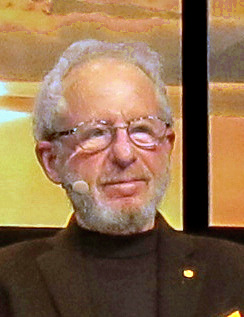A Quote by Paul Klee
There is plenty of room left for exact experiment in art, and the gate has been opened for some time. What had been accomplished in music by the end of the eighteenth century has only begun in the fine arts. Mathematics and physics have given us a clue in the form of rules to be strictly observed or departed from, as the case may be. Here salutary discipline is come to grips first of all with the function of forms, and not with form as the final result … in this way we learn how to look beyond the surface and get to the root of things.
Quote Topics
Accomplished
Art
Arts
Been
Begun
Beyond
Case
Century
Clue
Come
Departed
Discipline
Eighteenth Century
End
Exact
Experiment
Final
Fine
Fine Art
Fine Arts
First
First Of All
Form
Forms
Function
Gate
Get
Given
Grips
Had
His Way
How
Learn
Left
Look
Mathematics
May
Music
Observed
Only
Opened
Physics
Plenty
Result
Room
Root
Rules
Some
Strictly
Surface
Things
Time
Us
Way
Related Quotes
There may have been somewhere, as a few eighteenth-century philosophers dreamed, a group of peaceful men who got together one evening after work and drew up a Social Contract to form the state. But nobody has been able to find an actual record of it. Practically all the governments whose origins are historically established were the result of conquest-of one tribe by another, one city by another, one people by another. Of course there have been constitutional conventions, but they merely changed the working rules of governments already in being.
If you ask ... the man in the street ... the human significance of mathematics, the answer of the world will be, that mathematics has given mankind a metrical and computatory art essential to the effective conduct of daily life, that mathematics admits of countless applications in engineering and the natural sciences, and finally that mathematics is a most excellent instrumentality for giving mental discipline... [A mathematician will add] that mathematics is the exact science, the science of exact thought or of rigorous thinking.
It seems that every practitioner of physics has had to wonder at some point why mathematics and physics have come to be so closely entwined. Opinions vary on the answer. ..Bertrand Russell acknowledged..'Physics is mathematical not because we know so much about the physical world, but because we know so little.' ..Mathematics may be indispensable to physics, but it obviously does not constitute physics.
Good design is not about form following function. It is function with cultural content. By adding "cultural content" to the concept of "form follows function," objects cease to be finite or predictable. Maybe the right way to interpret the dictum is to first acknowledge that the function needs to be clearly understood before the form is considered.
The grey paintings, for example, a painted grey surface, completely monochromatic - they come from a motivation, or result from a state, that was very negative. It has a lot to do with hopelessness, depression and such things. But it has to be turned on its head in the end, and has to come to a form where these paintings possess beauty. And in this case, it's not a carefree beauty, but rather a serious one.
The end of the eighteenth and the commencement of the nineteenth century are remarkable for the small amount of scientific movement going on in this country, especially in its more exact departments. Mathematics were at the last gasp, and astronomy nearly so; I mean in those members of its frame which depend upon precise measurement and systematic calculation. The chilling torpor of routine had begun to spread itself over all those branches of Science which wanted the excitement of experimental research.
We, Autolux band, write in very different ways; sometimes we play with the band and write music first and then form vocal parts and lyrics. Or I'll find some music, or a guitar part or something, and I'll just write an entire sketch of an idea from that. So I think things have always been that way, it's just that this time around we had some more obstacles off and on all the time.
I do not think the division of the subject into two parts - into applied mathematics and experimental physics a good one, for natural philosophy without experiment is merely mathematical exercise, while experiment without mathematics will neither sufficiently discipline the mind or sufficiently extend our knowledge in a subject like physics.
A standard saying among fly fishermen is that trout spend anywhere from 80 to 90 percent of their time feeding below the water's surface on the immature forms of aquatic insects. Some anglers are even more precise, but whatever the exact percentage , it's safe to say that to fully appreciate any tailwater fishery you will have to learn the fine art of nymphing.
To me, form doesn't always follow function. Form has a life of its own, and at times, it may be the motivating force in design. When you're dealing with form as a sculptor, you feel that you are quite free in attempting to mould and shape things you want to do, but in architecture, it's much more difficult because it has to have a function.
So it persists, for many of us, hunger channeled into some internal circuitry of longing, routed this way and that, emerging in a thousand different forms. The diet form, the romance form, the addiction form, the overriding hunger for this purchase or that job, this relationship or that one. Hunger may be insatiable by nature, it may be fathomless, but our will to fill it, our often blind tenacity in the face of it, can be extraordinary.
The rules and principles of case law have never been treated as final truths but as working hypotheses, continually retested in those great laboratories of the law, the courts of justice. Every new case is an experiment, and if the accepted rule which seems applicable yields a result which is felt to be unjust, the rule is reconsidered.
Where do you put a form? It will move all around, bellow out and shrink, and sometimes it winds up where it was in the first place. But at the end it feels different, and it had to make the voyage. I am a moralist and cannot accept what has not been paid for, or a form that has not been lived through.







































